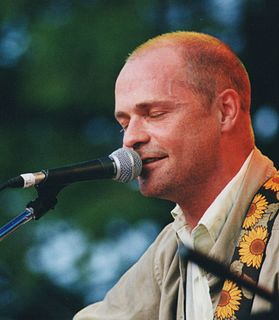A Quote by L. E. Modesitt, Jr.
I actually started out as a poet in high school. I published in small literary magazines for probably about ten years. I entered the Yale Younger Poet contest every year, until I was too old to be a younger poet, and I never got more than a form rejection letter from them.
Related Quotes
One of the appeals of William Carlos Williams to me is that he was many different kinds of poet. He tried out many different forms in his own way of, more or less, formlessness. He was also a poet who could be - he was a love poet, he was a poet of the natural order and he was also a political poet.
Nowadays when a poet with one privately printed book can have his next three years taken care of by a Guggenheim fellowship, a Kenyon Review fellowship, and the Prix de Rome, it is hard to remember what chances the poet took in that small-town world, how precariously hand-to-mouth his existence was. And yet in one way the old days were better; [Vachel] Lindsay after a while, by luck and skill, got far more readers than any poet could get today.
The poet or the revolutionary is there to articulate the necessity, but until the people themselves apprehend it, nothing can happen ... Perhaps it can't be done without the poet, but it certainly can't be done without the people. The poet and the people get on generally very badly, and yet they need each other. The poet knows it sooner than the people do. The people usually know it after the poet is dead; but that's all right. The point is to get your work done, and your work is to change the world.
That's a fairly Wordsworthian way to look at things! But yeah, actually - part of the poet's work, I think, is to maintain or reintroduce the imaginative capacity of their earlier self while nonetheless maturing. And I do think the more successful the poet is at this particular thing, the greater their achievement as a poet.
There are still many writers out in the Bay, extraordinary writers like Gina Valdez, a poet who I just saw in Portland. We have young people like Eduardo Corral, who won the Yale Younger Poets Award. José Antonio Rodriguez, published by Luis Rodriguez. But there are only a few of us who are paid attention to in New York. There are legions behind us who are not.



































